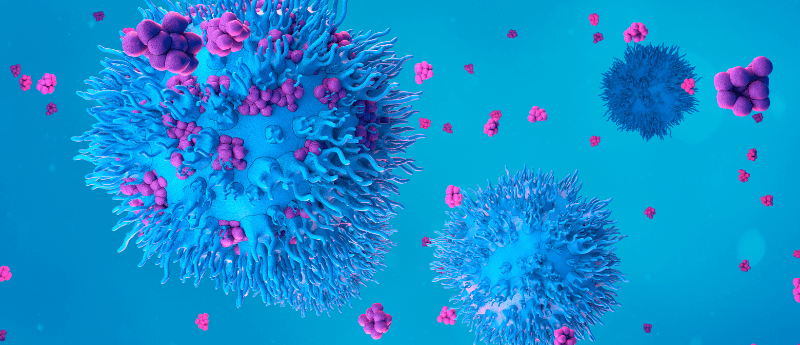Phase I trial of the DLL3/CD3 bispecific T-cell engager BI 764532 in DLL3-positive small-cell lung cancer and neuroendocrine carcinomas

Our partner journal, Future Oncology, has published a Clinical Trial Protocol which describes the design of a first in-human, Phase I, multicenter, open-label, non-randomized, dose-escalation study of BI 764532 monotherapy in patients with small-cell lung cancer (SCLC) or other DLL3-positive neuroendocrine carcinomas (NECs). BI 764532 is a bispecific DLL3/CD3 IgG-like T-cell engager. The main objectives are to determine the MTD for BI 764532 in patients with SCLC or other DLL3-positive NECs, and to evaluate safety, tolerability, pharmacokinetics and preliminary efficacy. This phase I study aims to recruit approximately 110 patients for the dose escalation. The authors anticipate that the results of this study will provide insight into the safety and preliminary efficacy of targeting DLL3 in patients with DLL3-positive SCLC or NECs.
Abstract:
Poorly differentiated neuroendocrine carcinomas such as small-cell lung cancer (SCLC) have poor survival and high relapse rates. DLL3 is found on these carcinomas and has become a target of increasing interest in recent years. The bispecific DLL3/CD3 T-cell engager BI 764532 has been shown to induce complete tumor regression in a human T cell-engrafted mouse model. Here, we describe the study design of a first in-human, Phase I, multicenter, open-label, non-randomized, dose-escalation study in patients with SCLC or other DLL3-positive neuroendocrine carcinomas. The study will determine the maximum tolerated dose and evaluate safety, tolerability, pharmacokinetics and preliminary efficacy of BI 764532 monotherapy.
Clinical Trial Registration: NCT04429087 (ClinicalTrials.gov)
Plain language summary:
DLL3 is a protein involved in development of the embryo during pregnancy. It has also been found on the surface of cells involved in the development of certain types of lung cancer and other tumors. The T-cell engager BI 764532 binds to DLL3 and cells of the immune system simultaneously, resulting in the death of tumor cells. Here we describe the rationale for, and design of, a clinical study of BI 764532 in patients with small cell lung cancer and other tumors containing DLL3. The aim of the study is to find the highest acceptable dose of BI 764532 that can be tolerated by patients, and explore the safety and efficacy of BI 764532.